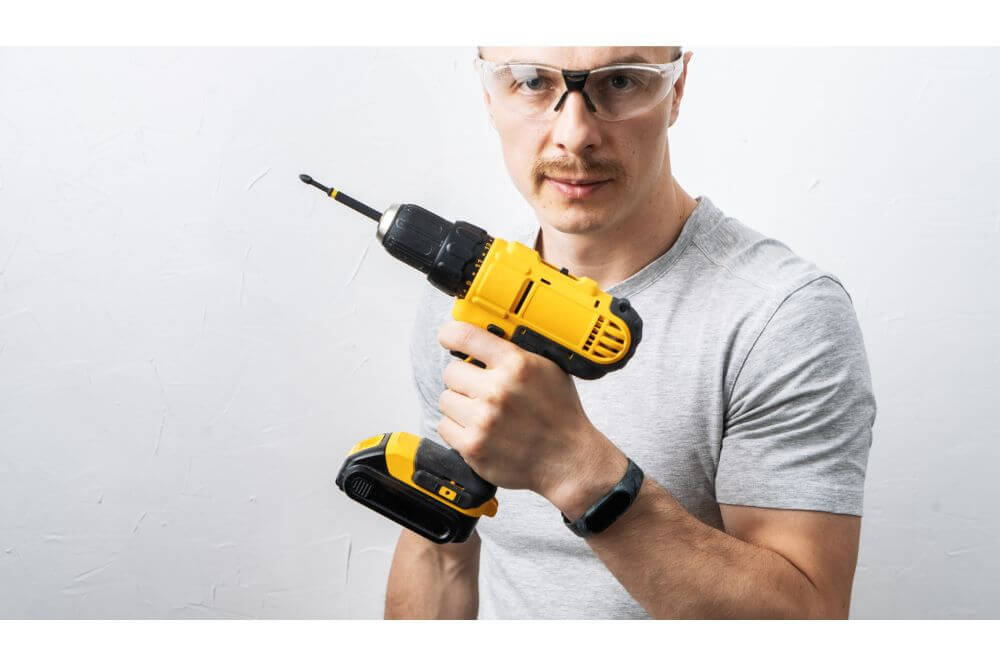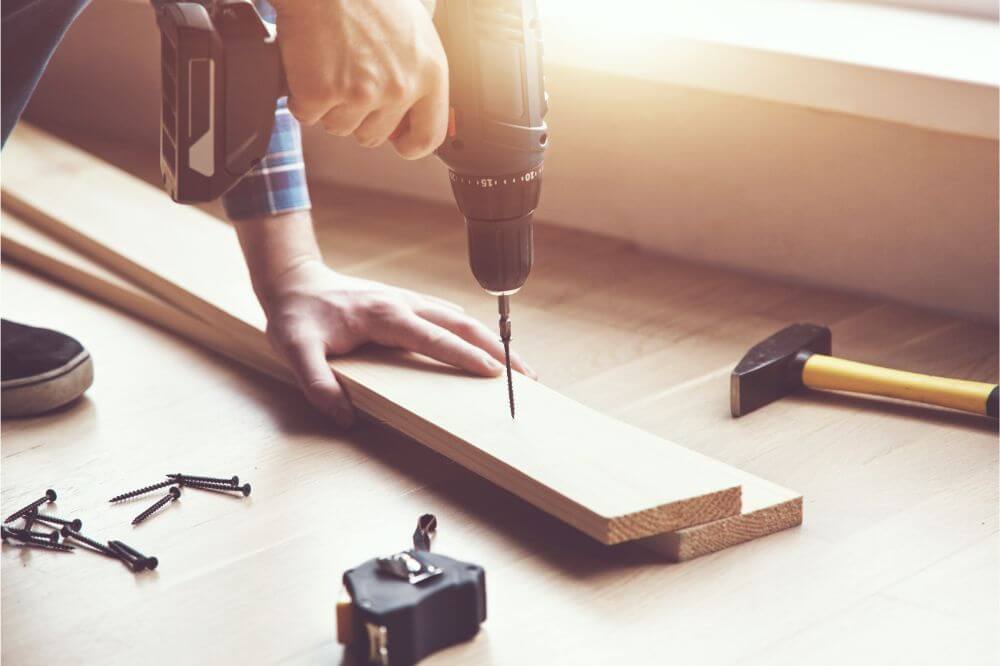Once you begin taking on DIY projects around the home, the need for tools increases. There’s a lot of equipment out there, and figuring out what’s suitable for your toolbox can be daunting. This is especially true when considering items like electric screwdrivers and drills that do similar jobs. So what’s the difference between these two pieces of equipment? Let’s find out.
What Are the Differences Between an Electric Screwdriver and Drill?
Two primary things distinguish an electric screwdriver from a drill – the size of the motor and the battery voltage. Drills have bigger, more powerful motors and are used for more demanding tasks. As a result, drills require higher voltage batteries to operate.
Although these are the significant differences between the tools, other factors set them apart.
Chuck and Bit
The chuck and bit differ in cordless drills and screwdrivers. A drill comes with a chuck that opens or closes around the bit used for drilling holes. Various types of drill bits are available, each used to perform a different task.
- Drill bit – Comes in different sizes to punch holes of different diameters.
- Sandpaper drill bit – Does a fantastic job of turning your drill into a sander.
- Driver bit – Used to drive fasteners like screws into surfaces.
- Scaling chisel bit – Used to chisel stone.
- Installer bit – Used to install wiring.
On the other hand, electric screwdrivers don’t have a chuck but a socket instead. The socket attaches to the driver bits used to turn screw heads. So you can use a cordless screwdriver on a flat head, Pozi, hex, Phillips, and other screws available on the market.
As you can see, the bits used in these two pieces of equipment are different, which means that the tasks performed are as varied as the bits.
Versatility
Cordless drills are more versatile than screwdrivers. Drills can make holes, chisel masonry, sand wood, and other jobs. But as superior as an electric screwdriver is to its manual counterpart, it’s essentially still just a screwdriver.
Size
Drills can be large and challenging to carry. Some, like the bench drill, are permanently stationed in one location. But others, like the hammer drill, are portable. Generally, drills tend to be bulky and cumbersome.
In comparison, an electric screwdriver is the size of a regular, medium-sized screwdriver. That means it’s not only light in weight but can even fit snugly in your pocket for transportation (although this isn’t advisable).
Power
Batteries power electric screwdrivers and drills. While the former runs on 4V to 8V cells, a cordless drill has a more robust 18- to 20-volt battery. This makes the drill more powerful than the screwdriver and able to take on more demanding jobs.
Usability
There are a lot of factors that go into choosing the right tool for your project. One is its ability to move into tight areas to complete specific tasks. Let’s look at how cordless drills and screwdrivers perform.
Drill Press
A drill press is a precise machine, but it can be challenging to move around. This limits the number of jobs it can perform.
Electric Drill
Compact and lightweight, electric drills are ideal for most tasks, but you can’t use them everywhere. They can put holes in open surfaces, but using an electric drill in a tight corner can be tricky. An electric drill can also be tiring to hold for an extended period. This tool is also limited because it needs to be plugged into a power source.
Hammer and Cordless Drills
Both of these tools are compact enough to carry around. They also have the advantage of not being plugged into a power source. This makes them more versatile than the electric drill.
Electric Screwdriver
Even more so than handheld drills, electric screwdrivers are small and lightweight. They can be used in almost any space and come with adjustable heads that allow users to reach into tight areas. In addition, electric screwdrivers run on batteries and don’t need a power outlet to be operational.
Suitable Tasks
There are jobs for which a screwdriver and drill are not interchangeable. However, knowing which one to use for each job will help you make the right decision before beginning a project.
Furniture
When it comes to building furniture, an electric screwdriver is the best tool as it’s mainly used for driving screws. On the other hand, a cordless drill would probably be too much machine for the job.

Picture Frames
An electrical screwdriver is the best choice if you need to hang a picture frame since it can drive the screw without creating a hole. A drill will definitely get the job done, but you will have to patch up the resulting holes later.
Concrete Anchor
A hammer drill is the best option for drilling into concrete because of its portability. A screwdriver is just not going to make a hole when trying to do so.
Wood Sanding
A cordless drill comes with several attachments that can be used to sand wood. These tools work just as well as traditional belt sanders. Electric screwdrivers don’t come with motors that are strong enough to accomplish this task.
Drilling Multiple, Identical Holes
You will need a drill press for multiple holes of the same depth. With handheld drills, you won’t be able to achieve the uniformity required, and a screwdriver isn’t designed to create holes.
Price
Because of their superior motors and battery power, drills are more expensive than electric screwdrivers. However, when deciding which tool to purchase, there are other factors to consider.
Although electric screwdrivers are generally cheaper than drills, they are only helpful for certain jobs. For instance, if you only need to assemble a bookcase or require a tool that can fit in tight spaces, then the screwdriver is for you. A drill may be more expensive, but it’s also more versatile, which gives you more value for money. If you only have enough in your budget for one tool, then you should probably go with the cordless drill.
How to Choose Between an Electric Screwdriver and a Drill
Before you decide on which tool to buy, it’s essential to think about how you plan on using it. For example, if you’re looking for a tool specifically to deal with screws, choosing the screwdriver would be wise. However, if you want something that you can use for more than one task, it might be worthwhile to get a cordless drill.
Another factor you should consider when choosing a tool is the type of wood you will be working with. For example, if you’re going to be using very tough materials such as hardwood, a screwdriver will not be up to the task.
You should also think about whether you are doing a quick repair job or working on a long-term project. Again, with its multi-dimensional uses, a drill will serve you better in the long run.
Cordless Drill vs. Screwdriver
As much as it may seem like cordless screwdrivers and drills carry out the same tasks, they have significant differences. Of course, a drill is a more powerful and versatile instrument, but there’s also a place for an electric screwdriver in your toolbox.

